Uncategorized
-
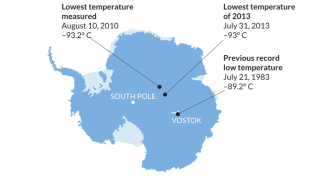 Climate
ClimateColdest place moves from one Antarctic site to another
New record low measured by satellite.
By Meghan Rosen -
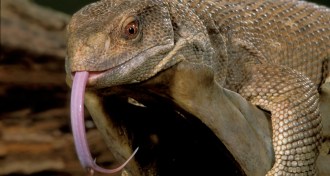 Animals
AnimalsLizard breath has surprising birdlike flow
Decades of assumptions may be wrong about the evolution of reptile lungs.
By Susan Milius -
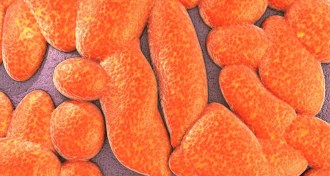 Life
LifeDietary changes affect gut microbes within a day
Menu restricted to meat, egg and cheese alters bacterial mix more than eating only plants.
-
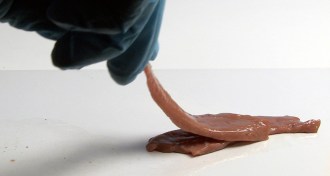 Materials Science
Materials ScienceNanoglue attaches tissues to each other
Silica particles could repair and help engineer human organs.
By Beth Mole -
 Health & Medicine
Health & MedicineHeartburn drugs linked to vitamin deficiency
People who take Nexium, Prilosec and other medicines more prone to low B12 levels.
By Nathan Seppa -
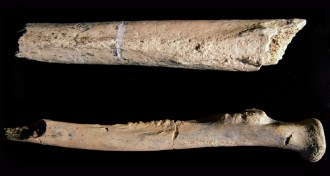 Humans
HumansFossils reveal a strong-armed, dead-end hominid
Olduvai Gorge finds suggest extinct hominid both walked and hung out in trees.
By Bruce Bower -
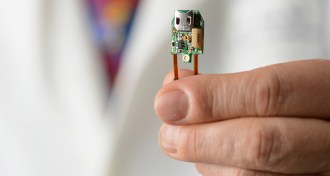 Neuroscience
NeuroscienceBrain chip enables injured rats to control movements
Prosthesis bypasses damaged area to connect distant neurons.
-
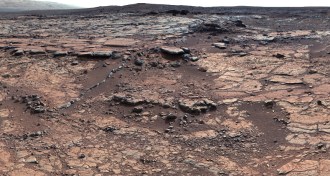 Planetary Science
Planetary ScienceMars was habitable longer, more recently than thought
Warmer, wetter conditions lasted until 3.5 billion years ago on the Red Planet.
By Andrew Grant -
 Animals
AnimalsA corsage that bites
The orchid mantis uses a flowery subterfuge to lure prey.
By Susan Milius -
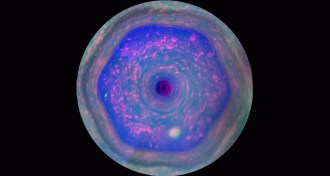 Astronomy
AstronomySaturn’s six-sided cloud pattern gets a close look
New images show particles in the planet’s hexagonally shaped jet stream.
-
 Math
MathTwin primes and prime bunches in mathematicians’ crosshairs
For second time this year, a mathematician makes a major advance toward proving a long-standing conjecture.
-
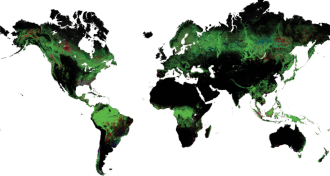 Ecosystems
EcosystemsOnline map tracks forest shifts from space
By layering more than 650,000 satellite images onto a Google map, researchers have created a new tool to track forest cover.
By Meghan Rosen